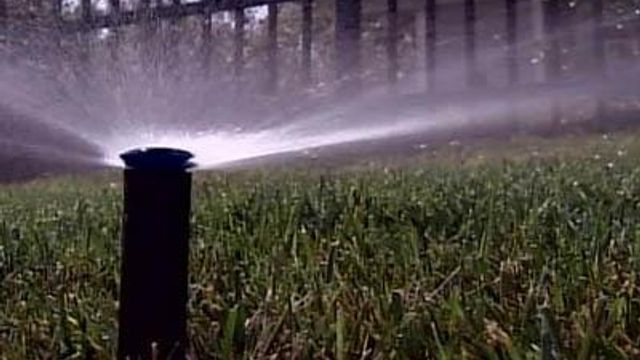Local News
Proposed legislation would help smooth responses to droughts
The draft bill would require local governments to set uniform minimum water conservation measures and would give the governor authority to act sooner than he can now.
Posted — UpdatedRALEIGH, N.C. — As North Carolina begins easing out of the nearly yearlong drought that threatened the state's water supply, the governor's office and the Department of Environment and Natural Resources are drafting a bill that they hope would help ease the effects of future droughts.
Representatives of the governor's office and DENR presented a draft Friday to a legislative environmental review committee. It outlines a set of minimum conservation measures that would be uniform across a geographic region.
As it stands now, local governments have different water conservation measures. For example, what might be considered Stage I water restrictions in one city might be considered Stage II in another.
"That is something we'd like to move away from so that we have a consistent set of criteria that people understand and they're not hearing conflicting messages from local governments," said Robin W. Smith, DENR assistant secretary.
The baseline measures, she said, would not prohibit a local government from implementing its own restrictions, like Cary with its year-round watering restrictions that limit outdoor water use.
The proposed legislation also would give the governor the ability to act sooner during a drought.
"It's difficult under existing law for the governor to respond as quickly as people wanted him to," said government affairs officer Franklin Freeman.
Under current law, for example, the governor has the power to declare a state of emergency only when public health and safety are at risk.
"That's a high standard," Freeman said. "Basically, it means when people run out of water to drink. And folks want action way before that situation exists."
Two other areas of the draft bill: separate metering for outdoor in-ground irrigation systems and the use of "gray water," which includes bath water and any water used in the home with the exception of toilet water.
Use of gray water would be legal only during drought conditions, because then the soil is dry and there would be less runoff.
"You don't want to be putting a lot of gray water in the ground and it not be soaked up and there be standing water that could run into water supplies," Smith said. "It does have bacteria in it. It does have chemicals in it."
More work is needed on the bill. The committee is expected to meet again next Friday. The governor's office and DENR want to introduce the bill in the upcoming session of the General Assembly and have it passed before the session ends.
• Credits
Copyright 2024 by Capitol Broadcasting Company. All rights reserved. This material may not be published, broadcast, rewritten or redistributed.






